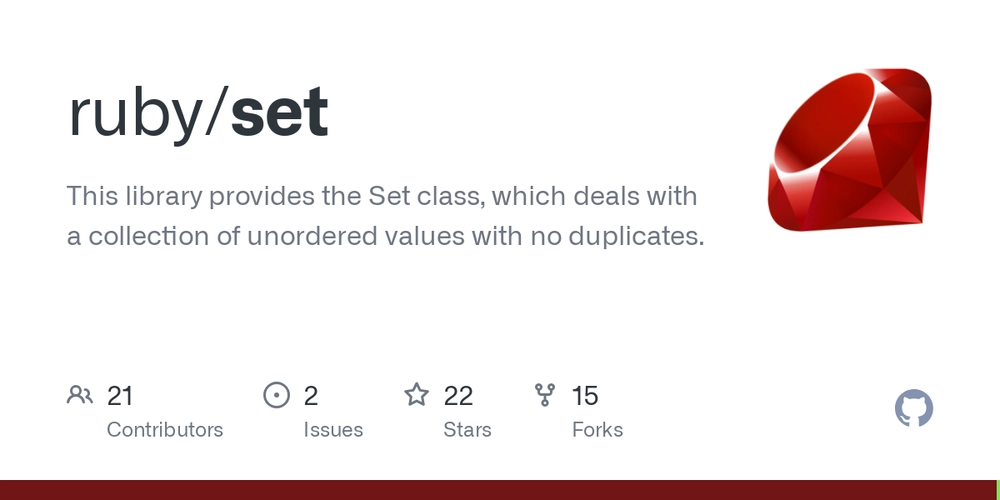TS1456: Type import assertions should have exactly one key - `resolution-mode` - with value `import` or `require`
TS1456: Type import assertions should have exactly one key - resolution-mode - with value import or require TypeScript is an open-source programming language created by Microsoft. It serves as a superset of JavaScript, meaning it builds on JavaScript by adding additional features, such as static typing and better developer tooling. Static typing allows developers to define the "type" of data a variable is expected to hold, making code more robust and easier to debug during development. For example, in TypeScript, we can specify the type of a variable like this: let age: number = 25; // Only numbers are allowed in 'age' let name: string = "Alice"; // Only strings are allowed in 'name' This makes TypeScript an excellent choice for large projects where catching errors early is crucial. If you’re new to TypeScript or want to explore it further, I highly recommend following my blog for more tips and advanced tutorials. You can also try amazing AI tools, like GPTeach, to enhance your coding skills. What is a Superset Language? When we say that TypeScript is a "superset" of JavaScript, it simply means that any valid JavaScript code is also valid TypeScript. TypeScript introduces extra functionality on top of JavaScript. If you already know JavaScript, you can easily transition to TypeScript without starting from scratch. For instance, the following JavaScript code is perfectly valid in TypeScript: let isLearning = true; // This is valid in both JavaScript and TypeScript But TypeScript lets us add specific type annotations to make the code safer and more predictable: let isLearning: boolean = true; // Adding 'boolean' type annotation This powerful superset nature makes TypeScript a great tool that offers all of JavaScript’s flexibility but with the added benefit of types. TS1456: Type import assertions should have exactly one key - resolution-mode - with value import or require With the release of TypeScript 4.5, a new feature called type import assertions was introduced. This is particularly useful in scenarios where you want to import types or modules with stricter assertions. However, TypeScript enforces certain rules to ensure the validity of these imports. When you encounter the error TS1456: Type import assertions should have exactly one key - resolution-mode - with value import or require, it indicates that the type import assertion doesn’t conform to the expected structure: the assertion must have only one key named resolution-mode, and its value must be either import or require. Let’s break this down with examples. Example of the TS1456 Error Imagine you have a JSON file named data.json: { "name": "Alice", "age": 25 } In TypeScript, you might try importing this file using an import assertion: import data from './data.json' assert { type: "json", someKey: "value" }; // Incorrect This code will trigger the TS1456 error because the import assertion has more than one key (type and someKey), which is not allowed. The error message for TS1456: Type import assertions should have exactly one key - resolution-mode - with value import or require typically looks like this: TS1456: Type import assertions should have exactly one key - `resolution-mode` - with value `import` or `require`. How to Solve the TS1456 Error To fix this error, make sure your type import assertion only contains the resolution-mode key and that its value is either import or require. Here's an example of the corrected code: import data from './data.json' assert { resolution-mode: "import" }; // Correct If you are using the require resolution mode instead, modify the assertion like this: import data from './data.json' assert { resolution-mode: "require" }; // Correct The key takeaway is that the assertion object must have exactly one key: resolution-mode. Any other structure is invalid and will throw the TS1456 error. Important to Know! Syntax Rules Matter: The structure of type assertions must conform strictly to the expected format: a single resolution-mode key with its value as either "import" or "require". Avoid adding extra keys. Resolution Modes Explained: import: Indicates that the module should be loaded using the ES Module system. require: Indicates that the CommonJS system should be used for loading the module. Use TypeScript 4.5 or Later: The feature of type assertions is available only from TypeScript 4.5 onwards. Ensure you’re using an updated version of TypeScript. FAQ: TS1456 and Type Import Assertions Q: Why do we use import assertions at all? A: Import assertions are used to define additional metadata for module imports, such as specifying the type of a file (e.g., JSON, JavaScript). Q: What if I use more than one key in the assertion? A: If you include more than one key in the assertion object, TypeScript will throw the TS1456 error since only

TS1456: Type import assertions should have exactly one key - resolution-mode - with value import or require
TypeScript is an open-source programming language created by Microsoft. It serves as a superset of JavaScript, meaning it builds on JavaScript by adding additional features, such as static typing and better developer tooling. Static typing allows developers to define the "type" of data a variable is expected to hold, making code more robust and easier to debug during development.
For example, in TypeScript, we can specify the type of a variable like this:
let age: number = 25; // Only numbers are allowed in 'age'
let name: string = "Alice"; // Only strings are allowed in 'name'
This makes TypeScript an excellent choice for large projects where catching errors early is crucial. If you’re new to TypeScript or want to explore it further, I highly recommend following my blog for more tips and advanced tutorials. You can also try amazing AI tools, like GPTeach, to enhance your coding skills.
What is a Superset Language?
When we say that TypeScript is a "superset" of JavaScript, it simply means that any valid JavaScript code is also valid TypeScript. TypeScript introduces extra functionality on top of JavaScript. If you already know JavaScript, you can easily transition to TypeScript without starting from scratch. For instance, the following JavaScript code is perfectly valid in TypeScript:
let isLearning = true; // This is valid in both JavaScript and TypeScript
But TypeScript lets us add specific type annotations to make the code safer and more predictable:
let isLearning: boolean = true; // Adding 'boolean' type annotation
This powerful superset nature makes TypeScript a great tool that offers all of JavaScript’s flexibility but with the added benefit of types.
TS1456: Type import assertions should have exactly one key - resolution-mode - with value import or require
With the release of TypeScript 4.5, a new feature called type import assertions was introduced. This is particularly useful in scenarios where you want to import types or modules with stricter assertions. However, TypeScript enforces certain rules to ensure the validity of these imports.
When you encounter the error TS1456: Type import assertions should have exactly one key - resolution-mode - with value import or require, it indicates that the type import assertion doesn’t conform to the expected structure: the assertion must have only one key named resolution-mode, and its value must be either import or require.
Let’s break this down with examples.
Example of the TS1456 Error
Imagine you have a JSON file named data.json:
{
"name": "Alice",
"age": 25
}
In TypeScript, you might try importing this file using an import assertion:
import data from './data.json' assert { type: "json", someKey: "value" }; // Incorrect
This code will trigger the TS1456 error because the import assertion has more than one key (type and someKey), which is not allowed.
The error message for TS1456: Type import assertions should have exactly one key - resolution-mode - with value import or require typically looks like this:
TS1456: Type import assertions should have exactly one key - `resolution-mode` - with value `import` or `require`.
How to Solve the TS1456 Error
To fix this error, make sure your type import assertion only contains the resolution-mode key and that its value is either import or require. Here's an example of the corrected code:
import data from './data.json' assert { resolution-mode: "import" }; // Correct
If you are using the require resolution mode instead, modify the assertion like this:
import data from './data.json' assert { resolution-mode: "require" }; // Correct
The key takeaway is that the assertion object must have exactly one key: resolution-mode. Any other structure is invalid and will throw the TS1456 error.
Important to Know!
Syntax Rules Matter: The structure of type assertions must conform strictly to the expected format: a single
resolution-modekey with its value as either"import"or"require". Avoid adding extra keys.-
Resolution Modes Explained:
-
import: Indicates that the module should be loaded using the ES Module system. -
require: Indicates that the CommonJS system should be used for loading the module.
-
Use TypeScript 4.5 or Later: The feature of type assertions is available only from TypeScript 4.5 onwards. Ensure you’re using an updated version of TypeScript.
FAQ: TS1456 and Type Import Assertions
Q: Why do we use import assertions at all?
A: Import assertions are used to define additional metadata for module imports, such as specifying the type of a file (e.g., JSON, JavaScript).
Q: What if I use more than one key in the assertion?
A: If you include more than one key in the assertion object, TypeScript will throw the TS1456 error since only the resolution-mode key is allowed.
Q: What happens if I forget to use a valid resolution mode?
A: If you don’t set the value of resolution-mode to "import" or "require", you’ll still receive the TS1456 error.
Final Notes on TS1456
The TS1456 error enforces stricter rules around import assertions to prevent potential inconsistencies and confusion when importing modules. By ensuring the assertion has exactly one key (resolution-mode) and that the value is either import or require, TypeScript simplifies and standardizes module imports.
Working with TypeScript may initially feel like extra work due to its strict typing and syntax rules, but these features are there to help you write more reliable, maintainable, and well-documented code. As you overcome common errors like TS1456: Type import assertions should have exactly one key - resolution-mode - with value import or require, you’ll gain greater confidence and clarity in your TypeScript projects.





































































































































































![[The AI Show Episode 145]: OpenAI Releases o3 and o4-mini, AI Is Causing “Quiet Layoffs,” Executive Order on Youth AI Education & GPT-4o’s Controversial Update](https://www.marketingaiinstitute.com/hubfs/ep%20145%20cover.png)




























































































































![[DEALS] Microsoft 365: 1-Year Subscription (Family/Up to 6 Users) (23% off) & Other Deals Up To 98% Off – Offers End Soon!](https://www.javacodegeeks.com/wp-content/uploads/2012/12/jcg-logo.jpg)




![From Art School Drop-out to Microsoft Engineer with Shashi Lo [Podcast #170]](https://cdn.hashnode.com/res/hashnode/image/upload/v1746203291209/439bf16b-c820-4fe8-b69e-94d80533b2df.png?#)







































































































(1).jpg?#)































_Inge_Johnsson-Alamy.jpg?width=1280&auto=webp&quality=80&disable=upscale#)













































































































![Apple to Split iPhone Launches Across Fall and Spring in Major Shakeup [Report]](https://www.iclarified.com/images/news/97211/97211/97211-640.jpg)
![Apple to Move Camera to Top Left, Hide Face ID Under Display in iPhone 18 Pro Redesign [Report]](https://www.iclarified.com/images/news/97212/97212/97212-640.jpg)
![Apple Developing Battery Case for iPhone 17 Air Amid Battery Life Concerns [Report]](https://www.iclarified.com/images/news/97208/97208/97208-640.jpg)
![AirPods 4 On Sale for $99 [Lowest Price Ever]](https://www.iclarified.com/images/news/97206/97206/97206-640.jpg)
































![[Updated] Samsung’s 65-inch 4K Smart TV Just Crashed to $299 — That’s Cheaper Than an iPad](https://www.androidheadlines.com/wp-content/uploads/2025/05/samsung-du7200.jpg)



































































